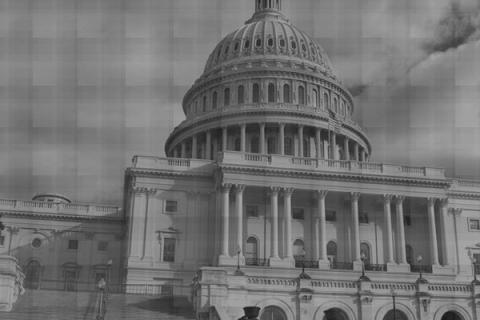And so we take the first step toward one-party rule! In a blistering blast of naivete, State Senator Abel Maldonado has defected to the cause of the budgetary compromise with one condition attached to his move: there must be a proposal for nonpartisan primaries on the ballot. Why Maldonado would support something which could potentially lead to the death of his party in California politics so enthusiastically is a mystery, but given the effects this bill will almost certainly have, if passed, it's no secret that it could spell disaster for principled Republicans.
The proposal runs as follows: Rather than having two parties run for office and hold their own primaries, both parties will still hold primaries, but instead of having the winners of each respective primary advance to the final ballot, only the top two candidates with the most votes will advance, irrespective of party. This means that two Democrats, two Republicans, or even one Democrat and one member of the Peace and Freedom Party could end up squaring off in the final analysis.
The argument has been made that this idea will open up roads for issue-oriented independent voters to vote on issues, rather than feeling constrained by party lines. On this Web site, some have suggested that open primaries will allow even registered voters to avoid the tricky problem of party loyalty and feel free to vote their conscience. There are two things severely wrong with this argument, and they will completely undermine the spirit of the bill if they are ignored. In the first place, if one assumes that any voters actually do vote on issues rather than on political calculation (an assumption which will be tackled later), then these arguments are technically correct from a demand side perspective. However, the demand side is only one side, and the "top two vote getters" implementation will severely marginalize this supposed effect on the supply side.
Consider the following: because of the absurd rulings in Reynolds v. Sims and its companion case, Wesberry v. Sanders, all state legislative districts must be of equal size with respect to population. What this means is that frequently, cities will be hacked into numerous pieces and then occasionally one or more of these pieces will end up lumped together with another, disparate area nearby.
Now, suppose one lives in a particularly large district, with only one really gigantic population center (say, part of a city), and a huge portion of farmland. The urban preferences of the population center might produce two urban issues-focused Democrats because of their population advantage, and those Democrats might never even set foot in the farmland, which might not just be a case of disenfranchisement, but also an instance of economic stupidity, since California's farms are often satellites of the gigantic egg industry, and arguably are just as productive for California as many of her cities. In any case, those voters who occupy the rural areas will find themselves systematically disenfranchised, and forced to choose between Tweedle Dee and Tweedle Dum.
And that's just assuming that people actually vote on issues, an assumption that is absurdly unrealistic, especially given the election we just witnessed. At the risk of repeating arguments from my previous post on the subject, I will simply point out that both Rush Limbaugh's "Operation Chaos" and the countless Democratic/Independent voters who voted for John McCain in early nonpartisan primaries, not to mention the Democratic voters who voted for Bill Simon in the Republican Primary against Gray Davis, are all instances of voters putting shallow political calculation before principle.
Both parties are slick political machines -- too slick not to take advantage of this. At this point, perverse political incentives overshadow any positive benefits the nonpartisan primary might have.
Maldonado is walking on touchy ground as it is, capitulating to this budget crisis problem. His support for nonpartisan primaries is bewildering, and ought to have been ignored. Unfortunately, crisis has a funny way of getting things passed that aren't actually all that nice.
